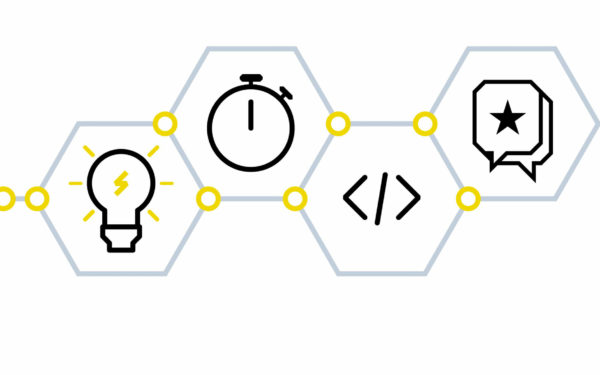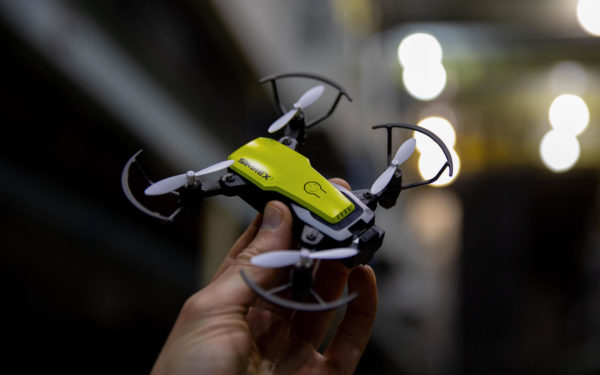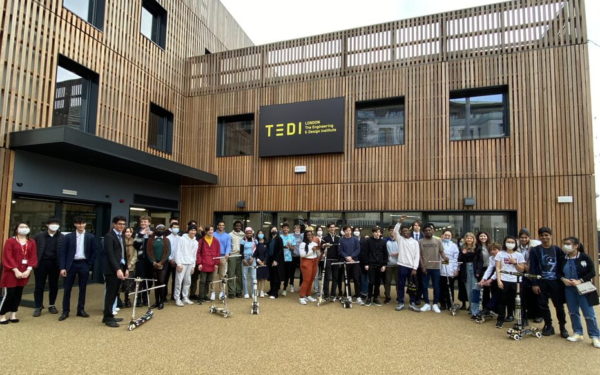
Summer school diaries – Week One
TEDI-London summer school students Nicole Pereira and Miranda Dike Yang share their reflections on week one at the TEDI-London Summer School.
Completing the puzzle: understanding Dementia
In this blog, Nicole Pereira reflects on learning about Dementia.
During a fantastic session with Katina Michael, we heard the individual stories behind all the research, the statistics, and the data. We looked at real, living and breathing human beings with their own unique understanding of their world because of a condition that affects everyone differently but has just one word to describe it – Dementia.
We were shown a group of pictures and were asked to identify the emotions and the people within them. It was amazing to see the uniqueness of each and every picture – we learned Dementia is not the same for everyone and understanding that will be crucial to designing a truly user-centric solution for our project.
I noticed that the images presented these people as having a ‘lacking’. The missing puzzle pieces are often a result of the progression of the disease, the type of dementia and the environment of the person, however it is clear that a lacking exists.
Our job is to define what is lacking, understand it and solve it; our job is to complete the puzzle.
However, how do you understand a disease that has no explanation, that doesn’t discriminate based on race, age, or gender? The most ideal answer would be ‘ask it’. Knowing that that, however, is not possible – what is required is an engagement, a willingness to speak to, learn from, and understand the people living with this disease.
Two key elements for dealing with individuals with Dementia are: empathy and the ability to listen. These two concepts sound basic, but carry so much power, as working with people with dementia is a sensitive issue. As a team we will need to find a way to meaningfully understand our end users and to dedicate time to analyse their needs. The ability to listen is so central to this project, not only will it condition the type of solution generated but also, the way in which the team works together to achieve it. The global pandemic has meant that all projects are working online, over 9-hour time zones, in multidisciplinary teams. If we can’t listen to each other then we will never find the missing pieces of the puzzle.
This project brings two groups of people together in a relationship that is inextricably linked. It bonds them and their goals, it forces them to understand each other, their limitations and their strengths. What makes this project amazing is the fact it is tangible, it is real. I cannot wait to see the direction the project goes in and would love you all to join me and my team on the journey.
Building a global team & understanding Dementia
In this blog Miranda Dike Yang, considers how to work effectively in global teams and working with people with Dementia.
TEDI-London Summer School 2020 has been on track for a week, but I can still feel the same enthusiasm as I felt on the first day when I met so many like-minded people from multicultural and multidisciplinary backgrounds. Having finalised the project goals with my teammates, we decided to distribute leadership to different disciplines so that everyone can become a leader based on their own strengths and weaknesses.
In consultation with my teammates, and on the guidance of the summer school teaching team, we have learned it is very important to take the difference in time zones and cultural backgrounds as an advantage and play to everyone’s strengths.
We experimented with this in the 24 hour challenge on Wednesday, where we had a 24 hour design sprint in collaboration with ThinkRadio – where the team had to work around the clock, passing the project though the team from time zone to time zone until we had worked on it for 24 hours and made a presentation!
Working with people with Dementia:
Personally, I never had a chance to speak to people with Dementia before, but I am confident and optimistic about the engagement and communication with them in the following weeks. My expectation of engagement with people with Dementia is to work respectfully and learn to deliver solutions from different perspectives. More importantly, it is essential for me to build up trust and meaningful relationships with people, mentors, and particularly with my teammates. I believe that whatever project in the early stages, it is very likely to have some crucial elements unclear such as purpose, scope, and risks. Therefore, to maintain the integrity of the team, I think it is essential to communicate with each other frequently, understand everyone’s visions and constraints, and keep every progress of the project well-informed within the team.
I’m looking forward to Week Two!
More Events articles


Diversity and project team experiences inspire future engineers
